1. Evidence of the Holy Quran
The Holy Quran emphatically proves that Jesus has passed away like other mortal human beings, and is no longer alive anywhere. It clearly states that Jesus possessed only human characteristics, and was in no way divine but a servant of God and his messenger. From birth to death, he was subject to all the physical and biological limitations that God has ordained for human beings.
First evidence: All human beings live and die in this world.
Prophets belong to the human race, and they are, therefore, subject to the eternal Divine law that human beings live and die in this world. The Quran states :
- "Therein (i.e. on the earth or physical world) shall you live, and therein shall you die, and therefrom shall you be raised." (7:25)
- "And there is for you in the earth an abode and a provision." (7: 4)
- "Have We not made the earth draw to itself the living and the dead." (77: 25, 26)
- "From it (i.e. the earth) We created you, and into it We shall return you, and from it raise you a second time." (20:55)
In these verses God has set forth His law that all human beings shall live their lives, with their physical bodies, in this world. Furthermore, it is opposed to the Divine law, according to which prophets have to bear persecution here in this world, that Jesus should be raised up to heaven when he was opposed by the Jews. His supposed physical life in heaven for two thousand years without food or drink is also opposed to the Divine law expressed in the above verses.
Second Evidence: Physical life depends on food and drink.
God has described His law, applicable not only to ordinary people but to all prophets as well, that life depends on food and drink:
- "We did not send before you (O Muhammad) any messenger but they surely ate food." (25:20)
- "We did not give them (i.e. the prophets) bodies not eating food." (21:8)
Of Jesus and his righteous mother, it is stated : "They both used to eat food" (5:7). So if Jesus no longer eats food — all Muslims hold that he does not eat food in heaven — he cannot, by the Divine law stated above, be alive with his physical body. The body requires food, so Jesus no longer eating food must be dead.
Third Evidence: Human body suffers ravages of time.
There is not a single human body in the world which is impervious to change. The living body is necessarily changing all the time. The Quran states:
- "And We granted abiding for ever (khuld) to no mortal before you (O Muhammad). If you die, will they abide (khalidun)" (21:34).
- "They (i.e. the prophets) did not abide for ever (khalidun)" (21:8).
As regards the meaning of the word khulud (translated above as abiding for ever), the famous Quranic dictionary of Imam Raghib explains:
"Khulud is that a thing be immune from decay, and that it endures in an unchanging condition. The Arabs call such a thing khulud... i.e., to persist in one condition, not being subject to change" (pp. 153, 154).
According to Arabic lexicology, therefore, khulud signifies persistence in one and the same state, with no change or decay taking place. In the verses above, a Divine law has been explained under which every person is affected by the passage of time. He is first a child, then an adult, then old and finally he dies. This is corroborated by many other verses, for example:
- "Allah is He Who created you from a state of weakness, then gave you strength after weakness, then ordained weakness and hoary hair after strength." (30:54)
- "Of you is he who is brought back to the worst part of life (i.e. old age) so that after knowledge he knows nothing." (22:5)
- "And whomsoever We cause to live long, We reduce to an abject state in creation. Do they not understand?" (36:68)
A general law of God has been stated here, to which no human being is an exception. From being a child, a person develops physically to attain his fullest development. After that he begins to decline, and ultimately reaches his ‘second childhood’ when he loses all his former attainments.
If, for the sake of argument, Jesus were to return to this world, he would be about 2000 years of age, and hence, according to the above Divine law, too old to be capable of doing anything at all. In fact, it is certain that, under this law, Jesus died a very long time ago.
Fourth Evidence: Death of all Prophets
- "The Messiah, son of Mary, was only a messenger; messengers before him had indeed passed away." (5:75)
- "And Muhammad is only a messenger — messengers have already passed away before him. If, then, he dies or is killed, will you turn back upon your heels?" (3:143)
The second verse here explains the first one. Both verses are similarly worded, the first referring to Jesus, and the second to the Holy Prophet Muhammad. The Quran’s verdict here is very clear for a truth-seeker. The first verse explicitly states that all prophets before Jesus had died — and all Muslims accept this. In the second verse, the same words are used to state that all prophets before the Holy Prophet Muhammad (may peace and the blessings of Allah be upon him) had died. In fact, since no prophet arose between Jesus and the Holy Prophet, the second verse could only have been revealed specifically to show that Jesus had died. Classical works of Arabic grammar tell us that, owing to the prefix al (the), the word messengers (al-rusul, lit. "the messengers") in the above two verses really means all messengers (see Bahr al-Muhit, vol. 3, p. 68).
Meaning of khala
It should be remembered that the word khala (translated above as "passed away") in the past tense without a particle, when used about human beings, refers to their death (see Lisan al-‘Arab and Aqrab al-Mawarad). In the Quran too, whenever the words qad khalat without the particle ila are used about any persons, the meaning is that they passed away and died, and will not return to this world. For instance:
- "Those are a people that have passed away (qad khalat)." (2:134)
- "…before which other nations have passed away (qad khalat)." (13:30)
- "…among nations that have passed away (qad khalat) before them." (46:18)
- "Such has been the way of Allah with those who have passed away (khalat) before." (33:38)
In interpreting the two verses about all prophets before Jesus and the Holy Prophet (may peace and the blessings of Allah be upon him) having passed away, the commentators have generally adopted the same meaning:
"The Holy Prophet would leave the world as had done previous prophets, by natural death or murder." (Qanwa ‘ala Baidawi, vol. 3, p.124)
In fact, the above verse about the Holy Prophet (3:143) itself clarifies the meaning of khala (passing away of all previous prophets) by using the words "if he dies or is killed" with regard to him. Obviously, the "passing away" of all previous prophets must also be one or other of "dying" or "being killed".
Fifth Evidence: All "gods" are dead
All those who are taken to be gods besides the One God are described by the Quran as "dead":
"And those whom they call on besides Allah created nothing, while they are themselves created. Dead (are they), not living. And they know not when they will be raised." (16:20-21)
And as to Jesus being taken for a god, the Quran itself bears witness:
"Certainly they disbelieve who say: ‘Allah, He is the Messiah, son of Mary’." (5:72)
These verses prove conclusively that Jesus, who is taken to be ‘god’ by a large section of mankind and is called by them as "Lord Jesus", must have been dead when these verses were revealed. Otherwise, this exception would have been mentioned here.
After amwat — "Dead (are they)" — the words ghairu ahya’-in — "not living" — clarify the matter absolutely, and re-affirm the death of these "gods".
Sixth Evidence: Holy Quran specifically mentions Jesus’ death
Having explained so many general principles on the subject of life and death, it was not necessary that the Holy Quran should speak specifically of the death of Jesus. Nevertheless, Almighty God has particularly mentioned Jesus’ death in the Quran. When the Jews succeeded in their plans to have Jesus sentenced to crucifixion, he prayed to God to be delivered from this fate, and was answered by Him thus :
"O Jesus, I will cause you to die, and exalt you to My presence, and clear you of those who disbelieve and make those who follow you above those who disbelieve till the day of Judgment." (3:54)
Here God made with Jesus four promises:
- "Cause you to die" (tawaffa), i.e., Jesus would not be killed by the Jews, but would die a natural death.
- "Exalt you in My presence" (raf‘a), i.e., he would not be crucified, which the Jews sought to do to prove him accursed, but rather he would receive Divine nearness. In fact, raf‘a is the opposite of wad‘a, the latter meaning disgrace and the former meaning honouring.
- "Clear you of those who disbelieve" (tathir), i.e., he would be cleared of the Jews’ allegations against him, as he was by the Holy Prophet Muhammad.
- "Make those who follow you above those who disbelieve till the day of Judgement", i.e. his followers would forever have the upper hand over his rejectors.
The above verse proves that Jesus has died, for raf‘a (exaltation to God’s presence) is attained only after death when all the material veils have been removed. Every righteous person is granted raf‘a to God after his death. The Holy Prophet has said:
"When a believer nears death, angels come to him. So if he is righteous, they say: ‘O pure soul! leave, you were in a pure body’ … So that pure soul comes out, then they take it to the heavens and its gates are opened for it." (Mishkat).
Hence, whenever a righteous individual dies, the angels take his soul up to heaven. The very same happened in Jesus’ case, so that after his death it was his soul that was raised to heaven, and he joined the ranks of the righteous among the dead.
Thus God fulfilled all the above promises in order: He rescued Jesus from the hands of the Jews, and eventually granted him a natural death; after his death, God honoured his soul with Divine nearness; He cleared him of the Jews’ allegations against him through the Holy Prophet Muhammad (may peace and the blessings of Allah be upon him) and He gave Jesus’ followers the upper hand over his rejectors.
Seventh Evidence: Christians went astray after Jesus’ death
Jesus’ statement, on the Day of Judgment, that his people made him a "god" after his death, is recorded in the Holy Quran as follows:
"And when God will say: ‘O Jesus, did you say to men, Take me and my mother for two gods besides God?’ He will reply: ‘Glory be to Thee! it was not for me to say what I had no right to say. If I had said it, Thou wouldst indeed have known it. Thou knowest what is in my mind, and I know not what is in Thy mind. Surely Thou art the great Knower of the unseen. I said to them naught save as Thou didst command me: Serve God, my Lord and your Lord; and I was a witness of them so long as I was among them, but when Thou didst cause me to die Thou wast the Watcher over them. And Thou art Witness of all things’." (5:116, 117)
This extract proves the following:
- Jesus shall deny preaching the erroneous present-day Christian doctrine of his divinity;
- He shall confirm the teaching he actually gave to his people;
- So long as Jesus was among his people, his followers held correct beliefs;
- It was after Jesus’ tawaffa (translated above as ‘Thou didst cause me to die’) that their beliefs became corrupted.
Meaning of tawaffa
Lexicons of Arabic tell us that tawaffa Allahu fulan-an, i.e., ‘God did the act of tawaffa to such a one’, means that God took his soul and caused him to die. This is the meaning given in Taj al-‘urus, Al-Qamus, Surah, Asas al-Balaghah, Al-Sihah and Kullyat abi-l-Baqa.
In the above verse, Jesus speaks of two distinct periods of time. The first one is mentioned in the words "so long as I was among them", and the second one when only "Thou wast the Watcher over them"; ‘them’ being Jesus’ people, the Christians. The first period (that of Jesus’ presence among his people) changed into the second period (that of only God, not Jesus, being their watcher) as a result of tawaffaitani or "when Thou didst cause me (Jesus) to die".
Now according to the above verse, the Christians held right beliefs in the first period, and wrong views in the second. As the Quran tells us repeatedly, and as all Muslims believe, Christian beliefs had become corrupted (or, in other words, the second period had begun) by the time of the advent of the Holy Prophet. So Jesus was dead by that time, as the second period was to come after tawaffaitani or the death of Jesus.
Summary
According to the Holy Quran, Jesus holds no more than the following three positions:
- He is a mortal from among mortals;
- He is a prophet of God from among the prophets;
- He is one of those who is worshipped as god by some people.
The Jews believe him to be an ordinary mortal, while the Christians worship him. The Muslims accept him as one of God’s prophets. The Quran has proved Jesus to be dead with respect to each one of the above three positions.
1. Jesus as an ordinary mortal:
The Quran states:
"We have not made before thee (O Muhammad) any mortal to abide for ever. If you die, will they (the opponents) abide?" (21:34)
This verse shows that the human body is never immune from change, and that it must live and die here in this world. As Jesus too was human, he must be subject to the laws God has established for men. Therefore, under the Quranic law "every soul must taste of death", he has died.
2. Jesus as a prophet:
"And Muhammad is only a messenger —messengers have already passed away before him." (3:143)
This verse proves the death of all previous messengers by the time of its revelation. Jesus was thus dead by that time.
3. Jesus as a supposed Deity:
As regards all those who are taken for gods besides Allah, the Quran tells us:
"Dead (are they), not living. And they know not when they will be raised." (16:21)
It is universally known, and confirmed by the Quran, that Christians believe Jesus to be divine and call to him in their prayers. So, according to the above verse, Jesus is dead and "will not answer them till the day of Judgment."
Hence it is fully and conclusively proved that Jesus died long ago, and belief in his continued life is against the clearest teachings of the Holy Quran.
2. Evidence of the Hadith
We have shown from numerous verses of the Holy Quran that Jesus is not alive in heaven but that he died in his own time as did other prophets. No doubt should, therefore, remain in the mind of any just and truth-loving person about this matter. But, for further satisfaction of the seekers after truth, we now present some sayings (Hadith reports) of the Holy Prophet Muhammad, who of course was the recipient of Quranic revelation and its premier commentator, to decide this issue so thoroughly that each and every Muslim would have to bow to the verdict.First Hadith: Meaning of Tawaffa"It is reported from Ibn Abbas that the Holy Prophet said in a sermon: O people! You will be gathered to your Lord (on the day of Judgment) ... and some people from my Umma will be taken and dragged towards hell. I shall say: ‘O Lord, but these are my people’. It will be replied: ‘You do not know what they did after you’. Then I shall say as did that righteous servant of God (i.e., Jesus) say: ‘I was a witness of them so long as I was among them, but when Thou didst cause me to die (tawaffaitani) Thou wast Watcher over them’ ..." (Bukhari, Kitab al-Tafsir, under Surah Ma’idah)The last words of the Holy Prophet ("I was witness of them ...") are taken from the verse 5:117 of the Holy Quran where Jesus is quoted as replying in these very words on the Day of Judgment. It is agreed by all Muslims that, when these words are used by the Holy Prophet in the above Hadith report, the meaning of tawaffaitani occurring there is "Thou didst cause me to die". So obviously they have the same meaning when used by Jesus, i.e., Jesus was taken from his people by death, not by rising alive to heaven.
Second Hadith: All Prophets had to die
In his last illness, during which he died, the Holy Prophet Muhammad entered the mosque with the support of two men to give the following address:
"O people! I have heard that you fear the death of your Prophet. Did any prophet before me live on so that I should be expected to live on amongst you? Listen! I am about to meet my Lord, and so will you. So I bid you to treat well the early muhajirs." (Al-anwar ul-Muhammadiyya min al-Muwahib al-Ladinya, Egypt, p. 317)This hadith settles the meaning of the three Quranic verses:
"Muhammad is only a messenger, messengers before him have indeed passed away" (3:144);
"And We made no mortal before thee to live on forever" (21:34);and:
Nor did they (the prophets) live on forever" (21:8).Had any prophet at all still been alive, the Holy Prophet could not have uttered the words above. So Jesus was dead by that time.
Third Hadith: Death within a century
- "There is no one alive today but will be dead before a hundred years have passed over it." (Muslim, Kanz al-Ummal, vol. 7, p. 170)
- "The Holy Prophet said: ‘Allah sends a wind every hundred years which takes the soul of every believer’. This hadith is sound in transmission." (Mustadrak, vol. 4, p. 475)
Fourth Hadith: Jesus’ age given as 120
"Aisha (God be pleased with her) said that, in his illness in which he died, the Holy Prophet said: ‘Every year Gabriel used to repeat the Holy Quran with me once, but this year he has done it twice. He has informed me that there is no prophet but he lives half as long as the one who preceded him. And he has told me that Jesus lived a hundred and twenty years, and I see that I am about to leave this world at sixty’."
(Hujjaj al-Kiramah, p. 428; Kanz al-Ummal, vol. 6, p. 160, from Hazrat Fatima; and Mawahib al-Ladinya, vol. 1, p. 42)The Tabarani says concerning this hadith: "Its narrations are reliable, and it is reported in a number of different versions". The hadith here leaves no room to doubt at all. It not only announces Jesus’ death but gives his age as 120 years. And it is reported through at least three channels: from Aisha, Ibn Umar and Fatima. This hadith is, therefore, sound and a very clear proof of Jesus’ death.
Fifth Hadith: Jesus dead like Moses
- The Holy Prophet Muhammad said: "Had Moses or Jesus been alive, they would have had to follow me." (Al-Yawaqit wal-Jawahir, p. 24; Fath al-Bayan, vol. 2, p. 246; Tafsir Ibn Kathir, under verse 81 of Al Imran)
- "Had Jesus been alive he would have had to follow me." (Sharh Fiqh Akbar, Egyptian ed., p. 99)
- "No. 19: If Moses and Jesus were alive, they would have but followed me." (English text from Al-Islam, published by the Fiji Muslim Youth Organization, vol. 4, Oct. 1974)
Sixth Hadith: Tomb of Jesus
The Holy Prophet said:
"May the curse of God be upon the Jews and the Christians who made the graves of their prophets into places of worship."
(Bukhari, Kitab as-Salat, p. 296)The Holy Prophet said this because he was anxious that the Muslims should avoid the evil of making the tomb of their prophet into a place of worship, as Jews and Christians had done with their prophets’ graves. The Jews had had numerous prophets but the prophet properly recognised by the Christians is only one — Jesus. This hadith shows that the Holy Prophet believed that Jesus had a tomb. And, in fact, this is the place where Jesus was kept after being removed from the cross (till he recovered from his wounds), which Christians revere greatly. Obviously, according to this hadith, Jesus did not rise up to heaven.
Seventh Hadith: Jesus in company of the dead
The various hadith about the Holy Prophet’s Mi‘raj record:
- "Adam is in the first heaven ... Joseph is in the second heaven, and his cousins Yahya (John the Baptist) and Jesus are in the third heaven, and Idris is in the fourth heaven." (Kanz al-Ummal, vol. vi, p. 120)The Holy Prophet (peace and blessings of Allah be upon him) saw Yahya and Jesus in the same place; and as the former, indeed every other prophet seen, is dead, so must Jesus be.
- The above hadith is corroborated by another that tells us that in the Mi‘raj vision the Holy Prophet met the spirits of all the previous prophets (see Tafsir Ibn Kathir,Urdu ed. published in Karachi, vol. iii, p. 18).
A hadith about the Mi‘raj records:
"Then the Holy Prophet descended in Jerusalem, along with all the other prophets. At the time of prayers, he lead them all in prayer."
(Tafsir Ibn Kathir, Urdu ed., vol. iii, p. 23)Among "all" the prophets is included Jesus. Had he, unlike other prophets, been alive physically in heaven, his "descent" to Jerusalem would have been with his material body. In that case he would have had to rise up to heaven physically a second time. But the Quran mentions only one raf‘ ("exaltation" which is misunderstood as "rising up to heaven") of Jesus!
This difficulty does not arise if we believe, as is clear from the various hadith about Mi‘raj, that Jesus was in the same state (i.e. dead) as all the other prophets seen in the vision.
Ninth Hadith: Holy Prophet’s discussion with a Christian delegation
"When a delegation of sixty men from the (Christian) people of Najran came to the Holy Prophet, their chief priest discussed with him the status of Jesus and asked him as to who Jesus’ father was. The Holy Prophet said: ‘Do you not know that a son resembles his father?’ They replied: ‘Yes’. He said: A lastum ta‘lamuna anna rabbana la yamutu wa anna Isa ata ‘alaihi-l-fana’, i.e., Do you not know that our Lord lives for ever while Jesus perished."
(Asbab an-nuzul, by Imam Abu-l-Hasan Ali ibn Ahmad al-Wahidi of Neshapur, published in Egypt, p. 53)What clearer testimony could there be that Jesus has died than this saying from the blessed tongue of the Holy Prophet!
Tenth Hadith: Two different descriptions of Jesus
In Sahih al-Bukhari, there are recorded two different physical descriptions of Jesus — one applying to the past Messiah and the other to the Messiah whose advent in the latter days is prophesied.
1. In the Mi‘raj the Messiah seen with Moses, Abraham and other prophets by the Holy Prophet, was described by him thus:
- "I saw Jesus. He was a man of a reddish complexion." (Bukhari, Kitab al-anbiya, ch. 24)
- "I saw Jesus, Moses and Abraham. Jesus had a reddish complexion, curly hair and a wide chest." (ibid., ch. 48)
2. Bukhari has recorded a hadith in which the Holy Prophet relates a dream of his about the future:
"In a state of sleep I saw myself circumambulating the Ka’ba, and I saw a man of a wheatish complexion with straight hair. I asked who it was. They said: This is the Messiah, son of Mary." (Bukhari, Kitab al-Fitn, ch. 22, ‘Mention of Dajjal’)Thus, where Jesus is mentioned along with Abraham and Moses, he is described as of a reddish complexion and curly hair; but where he is seen along with the Dajjal in a dream about the future, he is said to have a wheatish complexion with straight hair. Evidently these two different descriptions do not apply to one and the same person. So Jesus, the Israelite prophet, whom the Holy Prophet saw in the Mi‘raj vision, and the Messiah who was to appear in the latter days to kill the evil Dajjal, are two different persons.
The Israelite Messiah, Jesus, died, as is made clear by the Holy Prophet Muhammad’s sayings. And the Messiah whose advent in the latter days has been prophesied by the Holy Prophet, was to be from the Muslim community, and not an Israelite prophet. This is borne out by the following three Hadith reports:
- ‘Ulama’u ummati ka anbiya’i bani Israil, i.e., "The learned ones of my community are like the prophets of the Israelites."
- Ala inna-hu Khalifati fi ummati min ba‘di, i.e., "Certainly he (the Messiah to come) is my khalifa after me in my community."
- Fa amma-kum min-kum, i.e., "He shall be your Imam from among yourselves."
From all the Hadith reports quoted above, the following conclusions are drawn:
First hadith: The Holy Prophet Muhammad has referred to his own death using the words falamma tawaffaitani. Since these very words are used in the Holy Quran in respect of Jesus, it proves that he, too, has died.
Second hadith: The Holy Prophet asked his companions if any one at all of the previous prophets had survived so that he too would be expected to go on living. Had Jesus been alive the Holy Prophet could not have used this argument. Or, his companions would have argued back that as Jesus was alive the Holy Prophet need not die either. This shows that the Holy Prophet and his companions believed Jesus to be dead.
Third hadith: The Holy Prophet prophesied that all the believers living then would be dead within a hundred years. So even if Jesus had been alive then, he would have died in the specified period.
Fourth hadith: Just as the ages of various prophets, for example, Moses, David, Solomon, etc., are recorded in Hadith, Jesus’ age is noted in a hadith as being 120 years.
Fifth hadith: Had Jesus been alive, the Holy Prophet could not have said that "Moses and Jesus would have been my followers had they been still alive".
Sixth hadith: The Holy Prophet has made a reference to the tomb of Jesus.
Seventh hadith: On the night of the great Mi‘raj the Holy Prophet saw Jesus and Yahya (John the Baptist) together in the same place. Yahya being dead, shows that Jesus also was dead. The Holy Prophet met not the physical bodies but the souls of the prophets in the Mi‘raj experience.
Eighth hadith: On the Mi‘raj night all the other prophets, including Jesus, were led in prayer by the Holy Prophet Muhammad in the mosque at Jerusalem. This shows that Jesus was dead, for otherwise he would have descended to Jerusalem physically, and then ascended to heaven a second time — something which no one believes. This vision of leading all the previous prophets in prayer signified that the holy Prophet was the Khatam al-anbiya, and the one to whom the followers of these prophets would now have to render obedience.
Ninth hadith: The Holy Prophet’s discussions with the Christian delegation from Najran show that he believed Jesus to be dead.
Tenth hadith: In Bukhari two different physical descriptions of Jesus are recorded: one where he was seen along with other prophets in the Mi‘raj; and the other where he is seen circumambulating the Ka‘ba with the Dajjal in a dream of the Holy Prophet relating to the latter days, i.e., in the distant future.
This proves that Jesus, the Israelite prophet was dead, for the Messiah of the latter days was to be another person. It should be noted that prophecies invariably require interpretation and are not necessarily fulfilled exactly literally. The reason is that when a prophet or other righteous person is shown future events by God Almighty, it is in the form of visions or dreams seen by their spiritual, not physical, eyes. All holy scriptures are agreed that most dreams and visions require interpretation. This also applies to the Holy Prophet’s prophecies relating to "the descent of the Messiah", Dajjal, Gog and Magog, the Dabbat al-ard, etc.
Just because there are prophecies speaking of the "coming" of the Messiah, one cannot deduce therefrom that Jesus is still alive, while on the other hand numerous verses of the Quran and many Hadith reports declare forcefully that Jesus is not alive but died, and even his age is given as 120 years.
3. Evidence of the Ijma‘ of the Muslim Nation
According to Muslim belief, after the Holy Quran and then the Hadith, the Consensus of the Muslim Community (Ijma‘) is a binding argument which every Muslim must accept. So, having proved from the Quran and the Hadith that Jesus died a natural death in his own time, it is necessary to see what decision, explicitly or implicitly, theIjma‘ has given in this respect.Umar’s saying
After the Holy Prophet Muhammad’s death, the first Ijma‘ of the Muslims, in which all the Companions of the Holy Prophet participated, decided this very issue of Jesus’ death. All authorities — collectors of Hadith, commentators of the Quran, and historians — record that when the Holy Prophet died, Umar (God be pleased with him) started saying:
"The Holy Prophet has not died, and shall not die until God kills the hypocrites."
(Dur Mansur, vol. IV, p. 318)
"The hypocrites say that the Holy Prophet (may peace and the blessings of Allah be upon him) has died. But he has not died. He has gone to see the Lord, as did Moses when he stayed away from his people for forty days and returned after it was thought that he had died. By God! the Holy Prophet too will certainly return as Moses returned, and cut off the hands and feet of those who say that he is dead."Abu Bakr’s arrival and speech
(Sirat Ibn Hisham, Egypt, vol. III, p. 464)
We find in Hadith that Abu Bakr (God be pleased with him) arrived, saw the Holy Prophet, and:
"He uncovered his face, bent down, kissed him, wept, and said: ‘I would give my father for you, O Prophet of God; God would never give you two deaths, and you have died of the death that God had ordained for you.’ Abu Salmah says: Ibn Abbas told me that Abu Bakr came out, and Umar was talking to the people. He told him to sit down, but he refused. He told him again, and he still refused. Abu Bakr then recited the Kalima, and the people turned their attention to him, leaving Umar." (Bukhari, Kitab al-Jana’iz)Hazrat Abu Bakr then announced:
"Whoever among you worships Muhammad, Muhammad has indeed died; but whoever worships Allah, Allah lives on for ever, never dies. Allah says: ‘Muhammad is only a messenger; messengers before him have indeed passed away...’ (the Quran, 3:144)."The Companions’ reaction
(Bukhari, Kitab al-Mughazi)
Bukhari records:
"By God, it was as if the people did not know that God had revealed this verse until Abu Bakr recited it. Then (it was as if) the people had learnt it from him; and whomever one heard, he was reciting this verse (i.e. ‘Muhammad is only a messenger; messengers before him have indeed passed away...’)"Hazrat Umar related:
(Bukhari, Kitab al-Jana’iz)
"I was so shocked that my feet could not support me and I fell to the ground when I heard him recite it (i.e. the verse) that the Holy Prophet had indeed died." (ibid., Kitab al-Mughazi)Companions agreed on death of all prophets
Umar’s contention that the Holy Prophet had only gone to visit the Lord, and would be returning, was refuted by Abu Bakr, proving that all previous prophets had died — and consequently also the Holy Prophet. Had Umar or any other companion believed that Jesus was alive in heaven, he would certainly have spoken out against Abu Bakr’s deduction from the verse that all previous prophets were dead. This shows that none of the companions even imagined that Jesus, or any other prophet, was still alive and had not died.
This incident establishes the companions’ consensus — the first Ijma ‘ after the Holy Prophet — that all prophets are dead. It also disproves any isolated reports ascribed to certain companions that Jesus is alive in heaven, for such odd reports contradict the Quran, the Hadith, and the Ijma‘ of the companions, and must therefore be rejected.
The Imam of the Age, Hazrat Mirza Ghulam Ahmad, has written exactly the same:
"No companion is recorded as denying this argument put forward by Hazrat Abu Bakr which proves the death of all previous prophets. And this despite the fact that all the companions were present there. They were all silent upon hearing the argument. This proves that all the companions agreed on this point; such agreement constitutes conclusive evidence, and cannot be in error." (Tiryaq al-Qulub, p. 285, Sign no. 72)
4. Views of the first Khalifas, the great Imams, and the early scholars of religion
Having proved from the Holy Quran and from Sayings of the Holy Prophet Muhammad (peace be upon him) that Jesus has died like other prophets, and having shown that this conclusion was also unanimously agreed upon by the Companions as the very first ijma‘ after the Holy Prophet’s death, we now quote the views of the eminent figures of Muslim history, from the age of the great Companions through the middle classical times right up to the present day, showing that they too held the same belief.Thus the members of the Holy Prophet’s household have not only revealed Jesus’ age at death but make it clear that it was his soul, not his body, which was taken up to heaven, and that he died on the 27th of Ramadaan.I. The Khalifas1. Hazrat Abu Bakr Siddiq, God be pleased with him, said:
Aina Musa, aina Isa, aina Yahya, aina Nuh,2. Hazrat Ali, God be pleased with him, said:
Anta ya siddiq ‘as-in tub ila-l-maula al-jalil.
"Where is Moses, where is Jesus, where is Yahya, where is Noah, [i.e., they have all died], So you, O sinner Siddiq, repent to your Glorious Lord."
Al-mautu la walid-an wa la walad-an,
hadha-s-sabilu ila an la tara ahad.
Kana-an-nabi wa lam yakhlud li-ummati-hi
lau khallad-Allahu khalq-an tablahu khalada.
"Death spares not the father, nor the son, it is the path that leaves not anyone.
He (the Holy Prophet) was a prophet, yet he did not remain with his umma forever,
Had anyone before him lived forever, he (Holy Prophet) too would have lived forever."II. Members of the Holy Prophet’s Household1. Hazrat Aishah, God be pleased with her, relates from the Holy Prophet Muhammad:
"Jesus, son of Mary, lived to the age of 120 years."All the narrators of this hadith are reliable (ibid.)
(Hujaj al-Kirama, p. 428)
2. Hazrat Fatima, God be pleased with her, relates from the Holy Prophet:
"Jesus, son of Mary, lived to the age of 120 years."3. Hazrat Imam Hasan ascended the pulpit after the martyrdom of Hazrat Ali and said:
(Kanz-ul-Ummal, vol. vi, p. 120)
"O people! This night there has died a man whose status cannot be reached by the earlier or later generations. The Messenger of Allah used to send him to battle, so on his right would be Gabriel and on his left Michael (Mikal), and he would not return without victory. And he has left but seven hundred Dirhems with which he intended to buy a slave. He died on the night on which the soul of Jesus, son of Mary, was taken up, that is the twenty-seventh of Ramadaan."
(Tabaqat Kabir, vol. iii, p. 26)
Of Imam Malik, one of the four imams of jurisprudence (fiqh), it is written:III. Other Companions of the Holy Prophet1. Explaining the Quranic verse, "O Jesus, I will cause thee to die (mutawaffi-ka)", Ibn Abbas is recorded as saying:
"Ibn Abbas said: mutawaffi-ka means ‘I will cause thee to die (mumitu-ka) ’."2. "In the Mustadrak (a Hadith collection) it is reported from Ibn Umar that Jesus lived to the age of 120 years. It is likewise also in the Asabah." (Tafsir Kamalain).
(Bukhari, Kitab al-Tafsir, on verse 5:110).
3. The companion-poet Hasan Ibn Thabit sang:
Wa lau kanat-ad-dunya qadim-an bi-ahliha
la-kana rasulu-llahi fiha mukhalad-an.
"If any people of the world could exist forever, certainly the Messenger of Allah would have lived forever in it."IV. The Four Imams of Jurisprudence
And:"While most people believe that Jesus did not die, Malik said that he died."
(Majma al-Bahar, vol. i, p. 286)
"In the ‘Utbiyya it is written that Malik said that Jesus, son of Mary, died."
(Ikmal al-ikmal, Sharh of Muslim, vol. i, p. 265)V. Classical scholars and elders1. Imam Ibn Hazm, Amawi Zahiri Qurtabi, writes:
"Jesus, peace be upon him, was neither killed nor crucified, but God caused him to die and then raised him. The Almighty has said: ‘They did not kill him or crucify him’; and ‘I will cause thee to die and exalt thee’; and ‘I (Jesus) was a witness of them so long as I was among them, but when Thou didst cause me to die Thou wert the Watcher over them’ and ‘Allah takes souls (yatawaffa) at the time of death’. Thus there are two kinds of wafat: sleep and death. Jesus in his words ‘When Thou didst cause me to die (falamma tawaffaita-ni)’ was not referring to sleep, but it is correct that by wafat he meant death."2. Abul Hasan Ali Hajwairi, popularly known as Data Ganj Bakhsh, writes:
(Mahalli fil-Fiqh, p. 23)
"Imam Ibn Hazm adopted the apparent significance of the verse, and believed in his (Jesus’) death."
(Jalalain, under verse 3:55)
"The Messenger of God said that, on the night of the Mi‘raj, he saw Adam, Joseph, Moses, Aaron, Jesus and Abraham, in the heavens. Assuredly it was their souls."3. In his Quranic commentary, the Shaikh al-Akbar Muhayy-ud-Din Ibn Arabi writes:
(Kashf al-Mahjub, Chapter al-Kalam fir-ruh, p. 204).
"The raising (raf‘) of Jesus means that, at the time of separation, his soul was raised from the lower world to the higher world. And his being in the fourth heaven signifies that the source of his soul’s benefit is the spirituality of that sun’s sky which resembles the heart of the world, and towards that is his place of return. That spirituality is a light which illumines that heaven with its love, and the shining of the rays upon his soul is done by its stimulation. And as Jesus’ place of return is towards its real place of rest, and cannot attain its true development, his (Jesus’) descent in the latter days will be in a different body."4. Taqi-ud-Din Abul-Abbas Ahmad ibn Abdul Hakim ibn Abdus-Salam, known as Imam Ibn Taimiyya, has written:
(Commentary upon verse ‘God raised him to Himself’, p. 65)
"God has informed, in regard to the Messiah, that he told people only to worship God, ‘my Lord and your Lord’; and he was a wittness of them so long as he was among them, but after his death (wafat) only God was the Watcher over them. So if some people have misreported him, or misinterpreted his words, or deliberately altered the religion he brought, the Messiah cannot be held responsible for it, for he was only a messenger whose duty was just the delivery of the message."5. Shaikh al-Islam Shams-ud-Din Abu Abdullah Muhammad ibn Abi Bakr, known as Hafiz Ibn Qayyim, wrote:
(Al-Jawwab as-Sahih li-man baddala din al-Masih, vol. ii, p. 280)
"As for what is related about the Messiah that he was raised up to heaven at the age of 33 years, there is no sound authority for this which one could turn to."And:
(Zad al-Ma‘ad, vol. i, p. 20)
"With the exception of the Holy Prophet Muhammad, a person attains to heaven with his spirit only after death and separation from the body, so the spirits of all prophets went to heaven only after death and separation from the body." (ibid., p. 304)6. Allama Juba’i is reported as saying:
"This verse shows that God caused Jesus to die (amata) and brought about his death (tawaffa-hu), and then raised him to himself."7. Imam Asir-ud-Din Muhammad ibn Yusuf ibn Ali al-Andalasi, known as Abu Hayyan Nahwi, writes:
(Commentary Majma‘ al-Bayan, vol. i, under verse falamma tawaffaita-ni)
"This verse shows that God made Jesus die (tawaffa-hu wafat al-maut) before raising him."8. Imam Muhammad ibn Ali ibn Muhammad ibn Abdullah, known as Allama Shokani, has written:
(Bahr al-Muhit, vol. iv, p. 4)
"It is said that this verse shows that God caused Jesus to die before raising him."
(Fath al-Qadir Qalmi, p. 4)
5. Views of modern Muslim scholars (1)
I. Scholars of Arabia
1. In his Quranic commentary, Allama Abdul Rahman Sa‘di writes:
"God honoured Jesus by causing his disciples to spread in the world, in his life-time and after his death (mamat)."2. In The Message of the Quran, published by the Muslim World League of Makka in 1964, the author, Muhammad Asad, translates the verse 3:55 of the Quran in the following English words:
(Tafsir al-Manan, published in Makka)
"Lo! God said: O Jesus! Verily, I shall cause thee to die, and exalt thee unto Me."Verse 5:117 is rendered as:
"And I bore witness to what they did as long as I dwelt amongst them; but since Thou hast caused me to die, Thou alone hast been their keeper. For Thou art witness unto everything".In the footnote to verse 4:157 the translator elucidates:
"Thus the Quran categorically denies the story of the crucifixion of Jesus. There exist, among Muslims, many fanciful legends telling us that at the last moment God substituted for Jesus a person closely resembling him (according to some accounts, that person was Judas), who was subsequently crucified in his place. However, none of these legends finds the slightest support in the Quran or in authentic Traditions, and the stories produced in this connection by the classical commentators of the Quran must be summarily rejected."The next footnote contains the statement:
"Nowhere in the Quran is there any warrant for the popular belief of many Muslims that God has ‘taken up’ Jesus bodily into heaven."
II. Egyptian Scholars
1. The famous Egyptian reformist personality Mufti Muhammad Abduh believed that Jesus had died:
i. "In the Tafsir al-Manar, the teacher and Imam (Muhammad Abduh), after taking the apparent meaning of the verse, has stated that tawaffabears its obvious significance, i.e., causing to die. The raising (raf‘) comes after that, and it is spiritual elevation."2. Allama Rashid Raza, the famous disciple of Mufti Muhammad Abduh, writes:
(Qasas al-Anbiya by Abdul Wahab al-Najar, p. 428)
ii. "Tawaffa here means causing to die, as in the obvious and comprehensible significance."
(Al-Manar)
"Hence Jesus’ escape to India and his death in that country is not against reason and sense."3. Mahmud Shaltut, former Mufti of Egypt and ex-Rector of al-Azhar University, Cairo, writes:
(Quranic Commentary by Al-Sayyid Rashid Raza, part vi, pp. 42, 43)
i. "There is no authority in the Quran or the Sunna which can satisfy the heart upon the belief that Jesus was taken up to heaven with his body and that he is still alive there and that he shall descend therefrom to earth in the last days."4. Al-Ustaz Mustafa al-Maraghi:
(Al-Fatawa, published by Al-Idara al-‘Ama lil-Saqafat al-Islamiyya bil-Azhar, pp. 52-58)
ii. "The Quranic verses in this connection indicate that God had promised Jesus that He would cause him to die at the appointed time, and elevate him to Himself, and protect him from the disbelievers. This promise has been fulfilled. His enemies could not kill him or crucify him; instead, God caused him to die at the end of his appointed term and elevated him to Himself."
(Ibid.)
i. Commentating on the verse, Ya ‘Isa inni mutawaffi-ka, he notes:5. Allama Muhammad Farid Wajadi notes the views of some research scholars as:
"In this verse is the glad tiding of his (Jesus’) deliverance from their (the Jewish) plot and his life reaching its appointed term. They would not be able to harm him as they intended by their evil plan. Tawaffa means the ordinary death, and raf‘ (elevating) is for the spirit after death. The meaning is ‘I will cause you to die (mumitu-ka), and after death (maut) I will establish you in an exalted position in My presence’, as God has said of the prophet Idris: ‘He elevated him to a high state’."
(Tafsir al-Maraghi, part iii, p. 165)
ii. In explanation of verse 3:143 of the Quran, he writes:
"It means that Muhammad is but mortal. There have been messengers before him, so they died, and some, like Zacharia and Yahya, were killed. It was not ordained for anyone of them to live forever. So if he (Holy Prophet Muhammad) dies, as had Moses, Jesus, and other prophets died …."
(Ibid., part iv, p. 87)
"Others have said that God caused Jesus to die as he causes people in general to die. Then his spirit was raised to God, as is shown by the words: Inni mutawaffi-ka wa rafi‘u-ka ilayya."6. The famous Lebanese scholar Ahmad Al-‘Ajuz writes:
(Da’irat-ul-Mu‘arif, Islamic Encyclopedia, vol. vi, p. 784)
"Jesus certainly died on earth according to God’s words inni mutawaffi-ka which mean ‘I will cause you to die’ (mumitu-ka). Death (maut) is something that is bound to happen, as God said through Jesus’ tongue: ‘Peace be upon me the day I was born and the day I die’."7. Al-Ustaz Abdul Karim al-Sharif writes:
(Signed: Ahmad al- ‘Ajuz)
"As the Quran has mentioned, God caused the Messiah to die physically, and raised him to Himself and purified him, just as He causes us to die, raises us to Himself, and purifies us."8. Al-Ustaz Abdul Wahab al-Najjar comments on the Quranic verse Kuntu ‘alai-him shahid-an ma dumtu fi-him (5:117), as follows:
(Al-Nafkhat al-Ula min al-Ta’wil)
"Jesus watched over his followers and gave them good exhortations till his death (wafat). After that, God was the Watcher over them."9. In his article Hal al-Quran Mu‘jiza (‘Is the Quran a miracle?’), Dr Ahmad Zaki Abu Shadi writes:
(Qasas al-Anbiya, 4th edition, 1956)
"It is a well known teaching of Islam that God is everywhere, and that He is the light of the heaven and the earth. So the words ‘He raised him (Jesus) to Himself’ do not have the physical meaning that He lifted him up to heaven, as is the Christian belief. … Raf‘ here means to rescue and to honour, as opposed to a degraded death on the cross in the manner in which criminals are executed. Other interpretations that some Muslim commentators have adopted are more akin to poetry than to sound logic, and the reliability of these commentators’ scholarship is rather limited."10. Egypt’s famous literary figure, Al-Ustaz ‘Abbas Mahmud al-‘Aqad, writes:
(Al-Mawahib Azar, Argentina, March 1955)
"In this connection there is a historical report which cannot be ignored because it deserves great attention. This report relates to the tomb to be found in the Khanyar area of the capital of Kashmir, and known as the grave of the Prophet or the grave of Jesus. It is recorded in the bookTarikh al-‘Azma, written about 200 years ago, that the grave is that of a Prophet called Yuz Asaf. The people of Kashmir report from their ancestors that this prophet came to that land two thousand years ago."11. In a poem in praise of the Holy Prophet Muhammad, Allama Ibn Rashid al-Baghdadi writes:
(Hayat al-Masih fil-Tarikh wa Kushuf al-‘Asr al-Hadith, p. 213)
Mahauna bi-ka al-adyan lau ‘asha rusulu-na
la-ja’a-ka ‘Isa tabi‘-an wa Kalim
"Through you all other religions were superseded; had previous prophets been still alive, Jesus and Moses would have been your followers."
(Diwan Ma‘dan al-Azafat, published in Beirut, p. 28)
III. Iranian Scholars
1. Iran’s famous religious scholar Zain al-‘Abidin, whose Quranic commentary was published with the support of the Iranian Government, translates in it the verse Ya ‘Isa inni mutawaffi-ka as meaning that Jesus’ soul, and not his body, was raised to God’s presence (vol. i, p. 268).
2. In a poetic verse, Mirza Abul Hasan Qa-ani Sherazi says:
"Jesus has gone up to the skies, but has left his earthly body here."
6. Views of modern Muslim scholars (2)
IV. Ulama of the Indo-Pakistan Sub-Continent
1. Sir Syed Ahmad Khan, renowned nineteenth century Muslim educationist, social reformer, religious scholar and founder of the Ali Garh Muslim University, wrote:i. "Now we must turn to the Holy Quran to see what it says. The Quran makes mention of Jesus’ death in four places … Firstly in Sura Aal Imran, secondly inSura Ma’ida, … thirdly in Sura Maryam … fourthly in Sura Nisa’. Jesus was not killed by the Jews, either by stoning or by crucifixion, but he died his natural death, and God raised him in rank and status … From the first three verses it is clear that Jesus died a natural death. However, as the Ulama of Islam had followed the Christians, in accepting that Jesus had gone up to heaven alive, before looking at the Quran, so they have tried to interpret some of the words in these verses to accord with their unsound belief."(Tafsir Ahmadi by Sir Syed Ahmad Khan, vol. ii, p.48)2. Nawab Azam Yar Jung (Maulvi Charagh Ali) writes:
ii. Referring to the expression ‘in this’ (Arabic: bi-hi) in the verse: ‘And there is none of the People of the Book but will believe in this before his death’ (4:159), which is generally taken to mean in him (i.e. in Jesus) Sir Syed writes:
"This points to the words ‘And their saying: we have killed the Messiah’ [4:157], and to their saying, and not to the Messiah. So this means: ‘All the People of the Book, before their death, will believe that Jesus was killed’. After this it is said: ‘And on the day of Judgment he, i.e. Jesus, will be a witness against them’. The word ‘ala [‘against’] is used to indicate loss or harm. So the meaning is that on the day of Judgment Jesus will be a witness against their belief."
(Maktub Sir Syed, No. 2, p. 48)
iii. "Jesus spent his early life migrating from one place to another. His later life was not very long, for he was 33 years of age when he died, and at that time there were only 70 people who believed in him."
(The Ali Garh Magazine, Intikhab No. 1971, p. 48)
" ‘As for their saying, we killed the Messiah, Jesus, son of Mary, the messenger of God; they killed him not, nor did they cause his death upon the cross (ma qatalu-hu wa ma salabu-hu)’ [The Quran, 4:157]. There were two methods of executing people. The first was crucifixion, applied to those guilty of heinous crimes and to slaves, in which, after hanging from the cross for three or four days, the victim died of hunger, thirst, heat, pain of wounds and disturbed blood circulation. The second method was immediate execution which took two forms: 1. stoning to death, 2. beheading by sword.3. In his Punjabi work Tafsir Muhammadi, Maulvi Hafiz Muhammad of Lakhu Kay writes in verse:
"This is why the Holy Quran denies both kinds of execution, i.e., Jesus was not stoned to death or beheaded, nor was he killed by crucifixion. It should be noted that the Jews believe that Jesus was first stoned, and the Christians say that he died by crucifixion. The Quran refers to both these assertions in the wordswa ma qatalu-hu wa ma salabu-hu, i.e., they did not kill him by stoning or by crucifixion. It does not mean that Jesus was not nailed to the cross, for having the hands nailed to the cross, the feet tied to it, and then being taken down three hours later, is not sufficient to cause death. What is meant is to deny death by crucifixion. Wa lakin shubbiha la-hum means that it so appeared to them; and it happened in this way that to the people who crucified him Jesus appeared to be dead. Having been awake all the previous night, and having suffered shocks and pain, Jesus had fainted. But they thought he had died, and removed him from the cross.
"The ordinary commentators have written in explanation of the above words that the likeness of Jesus was cast upon some other person. This is ridiculous, for if it were to happen that when we see a particular person it may in fact be someone else upon whom his likeness has been cast, then all sorts of matters of identity would become dubious, there being no certainty in marriage, divorce, or rights of ownership. If the word shubbiha [it, or he, appeared as such] is taken to refer to Jesus, as the commentators suggest, it is an error because Jesus is mushabbahu bi-hi [one who is made to look like someone else] notmushabbahu [one that someone else is made to look like]. And if shubbiha be taken to refer to that imaginary, fictitious person who is supposed to have been crucified instead of Jesus, there is no mention at all in the Quran of such a person.
" ‘And those who differ therein are in doubt about it; they have no knowledge of it, but follow only conjecture’ [The Quran, 4:157]. That is to say, those people who coin various explanations about the crucifixion of Jesus are in doubt, merely making guesses. In section 16 above we have described what this difference was. Firstly, the Jews asserted that they had killed Jesus. Secondly, the Christians believe that he was crucified. Thirdly, there is the view of sects such as the Basilidans and the Corinthians that in his place Joseph Simon was killed. Fourthly, there is the opinion of Barnabas that Judas Iscariot was crucified in place of Jesus. The Quran declares all these views as conjectures. …
"They killed him not for certain" [4:157], i.e., he was not killed properly as killing ought to be done, or, he was not killed for sure. How could he have been killed for certain when he only spent about three hours upon the cross, which is not sufficient to cause death.
"Bal rafa‘a-hu Allahu ilai-hi [4:158] — rather, God raised him to Himself. This is just like Abraham’s statement: ‘I flee to my Lord’ (37:99); or what is said about the Emigrants: ‘And whoever goes forth from his home fleeing to God’ (4:101). This expression is used by way of honouring and dignifying someone, and does not mean that the person spoken of was seen flying in the clouds to heaven literally and sat somewhere in heaven. There are no grounds for such notions.
"Afterwards, Jesus did indeed die, as the Quran informs elsewhere: ‘O Jesus, I will cause you to die (mutawaffi-ka) and raise you to Myself (rafi‘u-ka ilayya)" (3:55). In explaining this verse, the commentators have displayed much indecision and hesitation, and have in fact reversed the order to read: rafi‘u-ka ilayya wa mutawaffi-ka. However, this is not the Quranic wording. In another place it is even clearer: ‘When Thou didst cause me to die, Thou wast the Watcher over them’ (5:117). Jesus will say to God that after He caused him to die, He was the Watcher over his followers. Both these verses mention wafat,and this clearly proves death (maut): ‘God takes souls (yatawaffa al-anfusa) at the time of their death (maut)’ (39:42). So his death is spoken of very clearly. As to when and where he died, it is not known, just as it is not known what happened to Mary."
(Intikhab Mazamin Tahzib al-Ikhlaq, vol. iii, pp. 211 to 222, 1896 C.E.)
"Without doubt a son resembles his father, But the Lord lives forever, He does not die, while death overtook Jesus."4. In the Preface to the Urdu translation of the Holy Quran by Maulana Ashraf Ali Thanvi and Hazrat Shah Rafi-ud-Din, published in 1934 in Delhi by Nur Muhammad, proprietor of As-hul-Mutabi‘, it is stated:
(vol. i, p. 247)"Of all the messengers of God, none survived."
(vol. i, p. 320)
"In that period, Bishop Lefroy gathered an army of missionaries and left England, promising that he would soon convert the whole of India to Christianity. Having collected a great amount of money from the people of England, and assurances from them of continuing assistance in the future, he entered India and raised a big storm. His attack on the teachings of Islam was a failure … But the attack based on the argument that Jesus was alive in heaven in his physical body, while all other prophets were buried in the earth, was in his view proving to be effective upon the general public. At that juncture, Maulvi Ghulam Ahmad Qadiani stood up and addressed Lefroy and his group, saying: ‘The Jesus you talk about is dead and buried like other mortals, and the Jesus whose coming is prophesied is myself, so you must accept me.’ By this means he made things so difficult for Lefroy that he could not shake him off. In this way, he defeated all the Christian missionaries from India to England." (page 30)5. The late Maulana Ubaidullah Sindhi wrote:
"Mutawaffi-ka means mumitu-ka [I will cause you to die] and what generally prevails amongst the public about Jesus’ life is a Jewish and Sabean fable … It is not a concealed matter that the source of Islam is the Quran, and in it there is not even one verse proving explicitly that Jesus did not die, and that he is alive and shall come down. These are only the deductions and explanations of some people, and are not free from doubt and uncertainty. How, then, can it be taken to be a fundamental Islamic belief ?"6. The late Maulana Abul Kalam Azad expresses his view as follows:
(Ilham al-Rahman fi-tafsir al-Quran, vol. ii, p. 49)
i. Upon receiving a letter which read:"Dear Maulana: … these Mirza’i [i.e., Ahmadi] people ascribe various views to you, and even give references from Wakil, Tazkira, etc., that you believe in Jesus’ death, and that you praised Mirza (Ghulam Ahmad) Sahib. Please write a conclusive book so that they dare not speak again. You should also state therein that it abrogates all your previous writings and views, thus leaving no scope for anyone to bring up old matters. — Inam-Ullah Khan, Baluchistan"7. Allama Dr. Sir Muhammad Iqbal
The Maulana replied:
"1. The death of Jesus is mentioned in the Quran itself.
"2. The question of praising or criticising the Mirza Sahib does not arise because:
‘If you are bad, you cannot be good,
He himself is bad who considers you to be bad’."
(Malfuzat-i Azad, compiled by Muhammad Ajmal Khan, Maktaba Mahaul, Karachi, pp. 129, 130)
ii. "The belief (in Jesus being alive) by its nature is in every way a Christian doctrine which has appeared in an Islamic guise."
(Naqsh Azad, p. 102, compiled by Maulana Ghulam Rasul Mahr)
i. He wrote in a poem:8. Maulana Sayyid Sulaiman Nadawi wrote:
"Is the son of Mary dead, or does he live?(Armaghan Hijaz, p. 227)
Are Divine attributes separate from God, or one with His Person?
Is the Coming one the Nazarene Jesus, or a Mujaddid having the son of Mary’s qualities?
Are the Divine words created, or pre-existing from eternity, In which belief does lie the salvation of the Ummah?
Are not sufficient for the Muslims today, These Lat and Manat [idols] carved out by theology."
ii. "I can only tell you what I believe. I consider the Hadith reports about the Mahdi, the coming Messiah, and mujaddidiyya, to be derived from Persian and non-Arab conceptions. They have no connection with Arab concepts or the true spirit of the Quran."
(Iqbal Nama, ‘Collection of the Letters of Iqbal’, vol. ii, letter to Chaudhary Muhammad Ahsan, p. 231)
iii. "Look for the descent of God upon the minaret of your own heart,
And give up waiting even for the Mahdi or Jesus."
(Baqiyat Iqbal, p. 451).
iv. "As far as I understand the meaning of this movement, the Ahmadis believe that Jesus died the death of a mortal human being, and the return of the Messiah refers to a person who bears spiritual similarity to him. This belief gives this movement a rational appearance."
(Khutbat Madras; also, Newspaper Mujahid, 13 February 1935; and Allama Iqbal ka paigham millat-i-Islamiyya kai nam, p. 22)
v. It is written about him:
"Jamal-ud-Din Afghani, Allama Iqbal, and many other thinkers believe that no Mahdi or Messiah will now descend from heaven."
(Zamindar, Lahore, 27 July 1952)
i. "Looking at the birth of Jesus, his death and the doctrine of Trinity, some American critics and rationalists now believe that Jesus was just a mythical figure."9. Khwaja Hasan Nizami of Delhi wrote:
(Khutbat Madras, p. 42, Sermon No. 2, published by the Lahore Academy, 205 Circular Road, Lahore)
ii. "It appears from this that even before Sir Syed [Ahmad Khan] some Ulama held the same viewpoint as his on this question [of Jesus’ death]. People today who make this issue a standard for determining belief or disbelief in Islam are indulging in extremism."
(Mu‘araf, March 1930, p. 171)
iii. In a letter from a high ranking Pakistan Government official, published by Maulana Abdul Majid Daryabadi in his newspaper Sidq-i-Jadid of Lucknow (India), the following is recorded about Maulana Sayyid Sulaiman Nadwi’s view of the "descent" of Jesus:
"The Maulana said: ‘I do not hold this belief myself and consider the hadith reports about it to be unsound.’ The Maulana had disclosed this view of his to Maulana Ihtasham-ul-Haq, but had added that since to oppose this belief gives rise to much trouble, he refrained from expressing it, and also because this belief did not relate to the fundamentals of Islam."(Sidq-i Jadid, Lucknow, 28 October 1955)
i. "Westerners believe that Jesus ascended to heaven. The Quran contradicts this Christian belief, for it contains the verse: inni mutawaffi-ka wa rafi‘u-ka ilayya, i.e., ‘O Jesus, I am about to cause you to die, and grant you exaltation and elevation unto Myself ’. This verse proves the death of Jesus. However, there is another verse saying: wa ma qatalu-hu wa ma salabu-hu wa lakin shubbiha la-hum, i.e., the Jews neither killed nor crucified Jesus, but they fell into doubt. This verse proves that Jesus was not put upon the cross, but died his own death. Rising to heaven does not mean that he went up to heaven but that his status in the estimation of God was raised."10. In his famous book Tazkira, after discussing historical testimony relating to the death of Jesus, Allama Inayat-ullah Khan Mashriqi wrote:
(Roznamcha, 16 November 1931, p. 15)
ii. "Some people say that Jesus is alive in the fourth heaven. It is proved from the Quran that Jesus was neither murdered nor crucified, but it is not proved that he ascended to heaven alive and is still living. On the contrary, the Quran says: ‘O Jesus, We shall cause you to die and then elevate your status in Our sight, or, raise you to Us’. The word wafat occurs first, and it means to die."
(Newspaper Munadi, Delhi, 18 September 1936, p. 16)
"It is clearly proved today that the prophets were great experts in the laws of nature, and very knowledgeable in the sciences. To be so well-informed is not only true prophethood but also conveys the exemplary lesson that Jesus’ death too was according to the Divine law regarding which the Quran says: ‘You will not find any change in the law of God’ (Sura Al-Fatir)."11. Maulana Zafar Ali Khan, editor of newspaper Zamindar, wrote:
(Tazkira, vol. i, footnote, pp.16-17)
i. "If the moral and spiritual teaching left behind with the Israelites by Jesus after his death (wasal) is examined, it appears that only such people could benefit from this inheritance as live in cloisters and monasteries, leading the lives of hermits."
(Punjab Review, compiled by Maulana Zafar Ali Khan, vol. i, no. 1, 8 August 1901)
ii. Disclosing Maulana Zafar Ali Khan’s view on the issue of Jesus’ death, Maulvi Abdur-Rahman, the Khateeb of the Jami‘ Mosque, Wazirabad, writes:
"On around 25th August, taking with me Maulana Sayyid Inayat-ullah Shah, the Khateeb of Jami‘ Mosque Gujrat, I went to visit Maulana Zafar Ali Khan at Karamabad. Also present there were Mr. Salik the editor of Inqalab and Maulana Chiragh Hasan Hasrat the editor of the daily Ihsan. During the conversation, the mention of Mr. Inayat-ullah Mashriqi came up. Maulana Zafar Ali Khan greatly praised Mr. Mashriqi’s sincerity of heart. In answer to this, I told the Maulana that Mr. Mashriqi’s beliefs ran counter to Islamic teachings. For instance, in his Tazkira he has denied that Jesus is still alive. The Maulana replied:
‘Belief in Jesus being still alive is not an Islamic belief. Many Muslims have rejected it.’He was supported in strong words by Maulana Charagh Hasan Hasrat. Hearing this denial of Jesus being alive from Maulana Zafar Ali Khan’s tongue pained me beyond words. I said to myself: My God! this is the same Maulana Zafar Ali Khan who has been a leading opponent of the Ahmadis for forty years, and yet his own belief is exactly the same as that of Mirza Ghulam Ahmad."
(Newspaper Mujahid, 12 September, 1935).
7. Views of modern Muslim scholars (3)
IV. Ulama of the Indo-Pakistan Sub-Continent (continued)
12. Allama Niyaz Fatehpuri writes:"Thirty-eight years ago I wrote in detail in Nigar that it is clearly proved from the Divine word that he (Jesus) died his natural death."(Monthly Nigar, Lucknow, India, June 1961)13. The chief editor of Al-Jami‘at, Delhi, Maulana Muhammad Usman Farqleet, gives his view as follows:
"Had belief in the second coming of Jesus been a fundamental article of faith and a means of salvation according to Islam, the Holy Quran would certainly have mentioned this doctrine explicitly since it claims to contain all matters of guidance: inna ‘alai-na la-l-huda, ‘it is Our responsibility to show that path of guidance’ [92:12]. However, the Holy Quran nowhere speaks of the second coming of Jesus. Hence it is right to conclude that the second coming of any prophet, and that too after the Khatam al-mursalin, is absolutely against the Quran … By saying Khatam an-nabiyyin the Quran has, with "alif, lam",closed the door to every type of prophethood. Furthermore, there is Jesus’ statement that ‘Ahmad shall come after me’; he himself cannot come after Ahmad."(Shabistan Urdu Digest, New Delhi, November 1974, p. 18)14. Muhammad Hasan ibn Muhammad Abbas, mujtahid and ustad at the Madrasa Nizamiyya, Lucknow, India, wrote:
"The findings of authentic, established books and the Quranic commentaries of the great scholars prove the wafat of Jesus, i.e., that he died. Thus, two verses in particular provide evidence for his death: firstly, inni mutawaffi-ka wa rafi‘u-ka ilayya; and secondly, falamma tawaffaita-ni kunta anta-r-raqiba ‘alai-him. These verses are quite sufficient to prove Jesus’ death. If these do not suffice, I can write still more and give ahadith in support."(as quoted in Tashhiz al-Azhan, April 1921, p. 39)15. Abdullah Yusuf Ali, in the first edition of his English translation and commentary of the Holy Quran, rendered verse 3:55 as: "I will take thy soul and raise thee to Myself." In the footnote at this point in the first edition, he wrote:
"Read this along with 4:157 where it is said that the Jews neither crucified nor killed Jesus, but that another was killed in his likeness. The guilt of the Jews remained. But Jesus completed his life and was when he died taken up to God."16. Maulana Ameen Ahsan Islahi, former deputy head of the Jama‘at-i Islami, writes:
"The meaning is that Muhammad (peace be upon him) too is a messenger of God, just as there had been many other messengers of God in the world. He too may have to face the same kind of trials and tribulations that they encountered. Just as all messengers (tamam rasulun) had had to pass through the stage of death, he too would die one day. His being a messenger of God does not mean that he would not die or cannot be killed."(Tadabbar Quran, vol. i, p. 287, under verse 3:144, published in Lahore, 1967)17. Sayyid Abul ‘Ala Maudoodi has written the following upon this topic:
i. "The most appropriate course of action according to the Quran is to refrain from giving further details of raf‘ jismani (bodily ascension) and of maut (death) … In fact, one should consider Jesus’ ascent to be an extraordinary manifestation of Divine power, and leave its exact nature explained briefly as God Himself has left it brief."(Maulana Maudoodi par itrazat ka ‘ilmi ja’iza, by Maulvi Muhammad Yusuf, Part I, p. 169)18. Ghulam Ahmad Pervaiz writes in his Quranic commentary:
ii. "I think that this issue is among the mutashabihat (unclear verses), for we cannot comprehend the exact nature of Jesus’ ascent, his staying alive somewhere, and his subsequent descent at some future date. What we have been taught about the mutashabihat is that we should not investigate them further, but merely believe in however much has been told to us. To undertake investigation of the mutashabihat, and to be indifferent to the muhkamat (explicit verses), is clear sign of perversity."
(Letter dated 1 January 1951, ref: 760/71, Ichhra, Lahore)
iii. In answer to a letter, Sayyid Abul ‘Ala Maudoodi had his reply written by Mr. Naeem Siddiqi as follows:
"As to what I have understood from the Holy Quran regarding the death of Jesus … I have already explained it, and you can read it. As to Jesus’ second coming, I cannot put it higher than a possibility because the Quran gives no explanation of it, and the basis of firm faith cannot be laid upon Hadith. It could be that God may send Jesus to earth again, and if He so wishes there cannot be any bar against it. In any case, this point is not part of Islamic doctrine."
(Rukh kardar by Chaudhary Habib-Ullah, p. 243)
iv. "The Quran does not explicitly state that God raised up Jesus, body and soul, from earth to heaven. Nor does it clearly say that he died a natural death on earth, and that only his soul was raised up. Thus, on the basis of the Quran, neither of these views can be definitely negated or confirmed."
(Tahfim al-Quran by Maulana Maudoodi, p. 240)
i. Under the verse "They planned, and God also planned", he writes:"Thus, that nation became divided into two parties, one supporting the truth and the other opposing it. The opponents started using secret means and plans in order to lay their hands on Jesus. Countering this, God produced hidden ways and means of saving him, and it is evident that the means devised by God are superior in every respect. Their final plan was to have Jesus arrested and crucified, so that he would, according to them, die in disgrace and humiliation. But God said to Jesus: Be not perturbed, this conspiracy of theirs can never succeed; you will die a natural death, and I will grant you high ranks; I will take you far beyond the reach of these enemies, and clear you from the accusations coined against you; your followers appear to be weak at this time, but in the end I will make those who follow you to be ever above those who deny you."19. Maulana Sayyid Abdud-Da’im Jalali writes:
(Mafhum al-Quran, Sura 3, vv. 53-54, p.132)
ii. "Verse 156: The list of their crimes does not end here, but carries on further. The denial of truth and persistence in haughtiness and arrogance made them reach such a stage that they levelled a grievous slander against a virtuous woman like Mary. And regarding a glorious prophet like Jesus, to this day they proudly claim to have killed him, making him die in disgrace. However, the fact is that they neither killed him nor made him die, according to them a death of disgrace, by putting him on the cross. What actually happened was different from what they thought had happened, and the reality became obscure to them. On the other side, the people who differ from the Jews on this matter, i.e., Christians, do not know the truth either. Their explanations too are based on conjecture and guess work. Thus neither the Jews nor the Christians know the truth of the event, neither of them having any sure knowledge. The truth is what has been stated above, i.e., Jesus was not killed, nor did he die an accursed death upon the cross as asserted by the Jews, but rather, God elevated him in status."
(ibid., Sura 4, verses 156 to 158, p. 229)
iii. "Verse 117: I (Jesus) said to them only what You (God) commanded me, i.e., worship God, your Lord and my Lord. Whilst I was among them I watched over them (so that they may not go wrong), but when You caused me to die I ceased to be the watcher, and after that You were their guardian, not only theirs but You are the guardian of everything in creation."
(ibid ., Sura 5, verse 117).
iv. "From the above explanations the fact has come to the fore as to how the Holy Quran has refuted this false belief of the Jews and the Christians that Jesus was crucified. As to the Christian belief that was raised up to heaven alive, this does not find support in the Quran either. On the other hand, it contains evidence which makes it clear that, like other prophets, he completed his span of life and died."
(Shu‘la Mastur, p. 72)
v. "The fact is that the concept of Jesus being raised up to heaven alive is a later invention of the Christian religion. The Jews gave currency to the idea — and it seemed to be so on the face of it — that they had killed Jesus upon the cross. The disciples knew that this was not true, but for reasons of expediency they could not contradict it."
(ibid., p. 83)
"It is recorded in an authentic hadith that the Holy Prophet Muhammad stated: ‘Had Moses or Jesus been alive, they would have had to follow me’."(Tafsir Bayan as-Subhan, on Part 3, p. 349)20. Abu Zafar Nazish Rizvi wrote a poem entitled Dastan-e Haram, a verse of which says of the Holy Prophet Muhammad’s demise:
"After Moses and Jesus, from the world21. Lt.-Colonel Khwaja Abdur Rashid writes:
Did the honoured Messenger depart to eternity."(Newspaper Azad, 12 October 1951)
"As the Ulama of Islam, among whom were many converts from the Ahl al-Kitab, had raised Jesus to heaven, the difficulty then arose for the Quranic commentators as to how he should be brought back in order to die his natural death. Hence, to prove this ‘return to earth’, he was presented as a sign of the Judgment Day. Iqbal grasped the reality, and so it was that he said:22. Maulvi Muhammad Ali of Jalandhar writes:
‘Look for the descent of God upon the minaret of your own heart, And give up waiting even for the Mahdi or Jesus’."(Weekly Chatan, 1st December 1958, p. 7)
"One day I was sitting in a mosque in Multan, where a Mirza’i [Ahmadi] was having an argument with a Maulvi Sahib. The Mirza’i kept on repeating that Jesus had died, and the Maulvi Sahib would shake his head in denial. Fifteen or twenty minutes elapsed in this argument. I came and sat with them, and said to the Mirza’i: Please excuse the Maulvi Sahib, and talk to me instead. He at once said: Jesus has died. I raised my hands and said: Let us pray that God grants him paradise."(Newspaper Azad, Lahore, 25 January 1952, p. 1)23. Professor Ilyas Barnee, the author of the famous anti-Ahmadiyya book Qadiani Mazhab,states in his book Islam:
"As to the second point, how Christ was raised up to God, it is further explained as below: ‘Behold! God said, O Jesus! I will take thy soul (make thee die) and raise thee to Myself and clear thee (of falsehoods of those who blaspheme that they crucified thee is cleared by the Quran)’ — section 6 of sura III Al-e Imran. ‘And I (Christ) was a witness over them (Christians) whilst I dwelt amongst them, (but) when Thou took my soul (made me die) Thou wast the watcher over them and Thou art a witness to all things’ — Section 16 of Sura V Ma’ida. ‘So peace is on me (said Christ) the day I was born, the day that I die, and the day that I shall be raised up to life again (at resurrection)’ — Section 2 of Sura XIX Maryam."(Vide Our Movement, by Mr. Naseem Saifi, p. 71)24. Khwaja Ibadullah Akhtar, B.A., of Amritsar expresses his view as follows:
i. "We do not wish to say any more on this issue than that Jesus was certainly nailed to the cross. However, he did not die on the cross, nor could have any man died on the cross in such a short period. But he fell into such a state of unconsciousness as to make people suspect that he had died. In that state of unconsciousness he was taken down from the cross, and being thought to be dead, placed in a tomb a sketch of which we have given in this book. When he became conscious, he left the tomb by himself."(Damishq, p. 54, published by the Steam Press, Amritsar, India, 1911)25. The editor of the monthly Balagh al-Quran, Lahore, writes:
ii. "The Christian religion is so bound up with the person of Jesus that if the Christians were to believe that Jesus has died this religion would also be dead Thus this religion is based upon the person of Jesus." (ibid., p. 50)
"Just as un-Quranic ideas have made the birth of Jesus a riddle, so it is also said about his death that he has been living in the fourth heaven for two thousand years, that he shall return, marry, have children, and then die. The argument for his being taken up to heaven is based upon the words Bal rafa‘a-hu Allahu ilai-hi, the meaning of which we have explained on page 29, that God caused him to migrate (hijra) to Himself, in accordance with His law for all the prophets. For if raf‘ be taken to mean lifted up to heaven, then it would have to be believed that the prophet Idris too is alive and living in a high place, as God has said of him: wa rafa‘na-hu makan-an ‘aliyyan (19:57) — ‘We raised him to a high place’. Obviously, just as the word rafa‘na-hu is used about Idris, the meaning of rafa‘a-hu Allahu ilai-hi according to the context is to raise in status by migration (hijra), not raise up to the sky.Now let us consider whether Jesus is alive or dead. For this, the following two verses of the Quran should be examined: ‘Muhammad is only a messenger of God; many messengers before him had passed away’ (3:144); ‘The Messiah, son of Mary, is only a messenger of God; many messengers before him had passed away’ (5:75). Both verses contain the expression: ‘Messengers before him had passed away’ (qad khalat min qabli-hi-r-rusul). According to this, if a messenger before Jesus were alive then it could be believed that a messenger before the Holy Prophet Muhammad, i.e. Jesus, was also alive. But if, according to this expression, no messenger before Jesus himself can be believed to be alive, then it should be remembered that Jesus too, as a messenger before the Holy Prophet Muhammad, according to ‘messengers before him had passed away’ is included amongst these prophets and has died. And as, by the clear testimony of the Quran and in accordance with the laws of nature, Jesus has died, neither is the view correct that he went up to the fourth heaven nor can the idea of his return arise.
The following verse is also adduced to prove that Jesus is alive: Qul fa-man yamliku min Allahi shai’-an in arada an yuhlika al-masiha ibna Maryama wa umma-hu wa man fil ardi jami‘-an (5:17). Its usual translation runs: ‘Say (O Prophet): Who is it that can interfere in God’s purpose if He wishes to destroy the Messiah, his mother, and all the creatures on earth’. If, on the basis of this usual translation, Jesus is believed to be still alive his mother would also have to be believed to be alive because after masih (Messiah.) occur the words umma-hu (his mother). However, as Mary is accepted as having died in accordance with the Divine law ‘every soul must taste death’, Jesus too must be considered dead according to this law. Moreover, since according to the Quranic verdict ‘Muhammad is only a messenger, messengers before him had passed away’, Jesus passed away before Holy Prophet Muhammad, i.e., he died like the other prophets, the verse under discussion must be translated according to the rule that in Arabic the past may be referred using the imperfect [i.e. present or future] tense. Remembering also that the wa (and) in umma-hu wa man fil ard (his mother and all the creatures on earth) indicates companionship, the correct significance of this verse, corresponding to the laws of nature, is this: ‘Say (O Prophet): Who is it that can interfere with God’s purpose if He wishes to destroy, along with the Messiah and his mother, all the creatures on earth’.
"In this Quranic verse it is correct to take the imperfect tense as referring to the past, just as in the following verse about the history of Joseph the imperfect tense must be taken to refer to the past: ‘And thus did We give to Joseph power in the land — he had mastery (yatabawwa’u) in it wherever he liked(yasha’u)’. In this verse the two verbs yatabawwa’u and yasha’u are in the imperfect, but they cannot be translated except in the past tense. To say about the deceased Joseph that ‘he has mastery in it wherever he likes’ is absolutely wrong.
Jesus’ death in his own words — On the Day of Judgment God will ask Jesus: ‘Did you tell people to take you and your mother as gods besides Allah’? He shall reply: ‘Certainly not! So long as I was among them I watched over them, and did not let them make any such idolatrous utterance. However, when You caused me to die, You were the watcher over them’. Here the words ‘when You caused me to die’ convey that it was after he died that his people made him and his mother gods. This topic is explained in Sura Ma’ida, verses 116 and 117. The words of the verse are: falamma tawaffaitani kunta anta al-raqiba ‘alai-him — ‘when You caused me to die, You were the Watcher over them’. Since it is proved from the Holy Quran that Jesus and Mary were taken to be gods after the death of Jesus, it follows from this that he has died."
(Monthly Balagh al-Quran, December 1963, p. 32, published by the Idara Balagh al-Quran, Samanabad, Lahore)
 Blog RSS Feed
Blog RSS Feed Via E-mail
Via E-mail Twitter
Twitter Facebook
Facebook

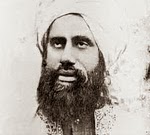
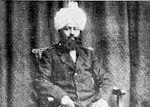


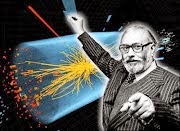
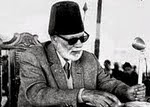


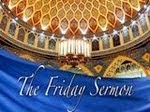

.jpg)



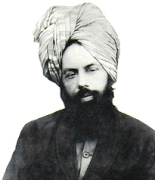

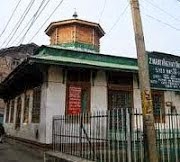
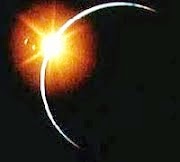




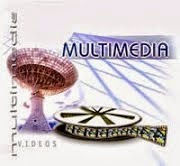

0 comments:
Post a Comment
Note: Only a member of this blog may post a comment.